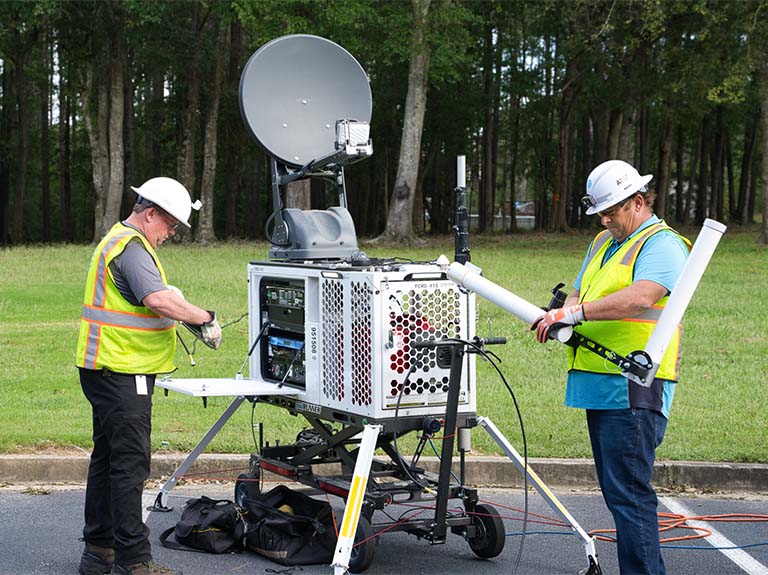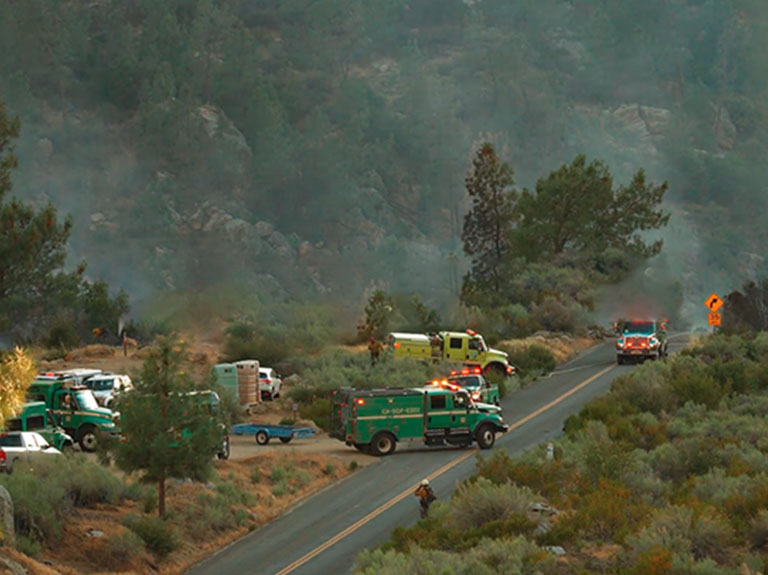AT&T Networks Prepare for Tropical Storm Dorian
AT&T* is ready for Tropical Storm Dorian with a fleet of disaster response equipment and personnel if needed.
We are closely monitoring and preparing for Tropical Storm Dorian as it moves towards Puerto Rico, the U.S. Virgin Islands and the Florida Coastline. Our preparation includes:
- Topping off fuel generators.
- Testing high-capacity back-up batteries at cell sites.
- Protecting physical facilities against flooding.
- Preparing emergency response and network recovery equipment for possible deployment following the storm.
- Identifying dedicated FirstNet deployable network assets to be used by public safety agencies on FirstNet to request as needed.
We continually work to enhance the resiliency of our network in storm-prone areas. We have installed more generators at critical cell towers and switching facilities, and moved electronics essential to network operations above expected flood levels.
In the last few years alone, we have improved the redundancy of our network throughout Puerto Rico, the U.S. Virgin Islands, and Florida by increasing the number of fixed generators and installing additional backup infrastructure at cell sites.
Additional investments to our infrastructure in these areas have boosted reliability, coverage, speed and performance for all of our customers, including Public Safety FirstNet customers.
“Customers rely on us, especially during major storms," said Joe York, president, AT&T Southeast. “That's why we practice readiness drills and simulations throughout the year and do all we can to have our networks prepared when severe weather strikes. At this point, we are actively working to position equipment and crews, and are ready to respond to support our customers if needed.”
The AT&T Network Disaster Recovery (NDR) program is one of the industry’s largest and most advanced disaster response programs. Our fleet includes hundreds of technology recovery and support trailers that can be quickly deployed to support customers and first responders.
Response equipment readied in the wake of an event may include:
- Mobile cell sites and mobile command centers like Cell on Wheels (COWs) and Cell on Light Trucks (COLTs)
- Emergency communications vehicles (ECVs)
- Flying Cell on Wings (Flying COWs)
- Drones
- A self-sufficient base camp: This is complete with sleeping tents, bathrooms, kitchen, laundry facilities, an on-site nurse and meals ready to eat (MREs).
- Hazmat equipment and supplies
- Technology and support trailers to provide infrastructure support and mobile heating ventilation and air conditioning
- Internal and external resources for initial assessment and recovery efforts
Just as we prepare, we encourage customers to do the same. Additional information and tips for disaster preparedness can be found at about.att.com/pages/disaster_relief



